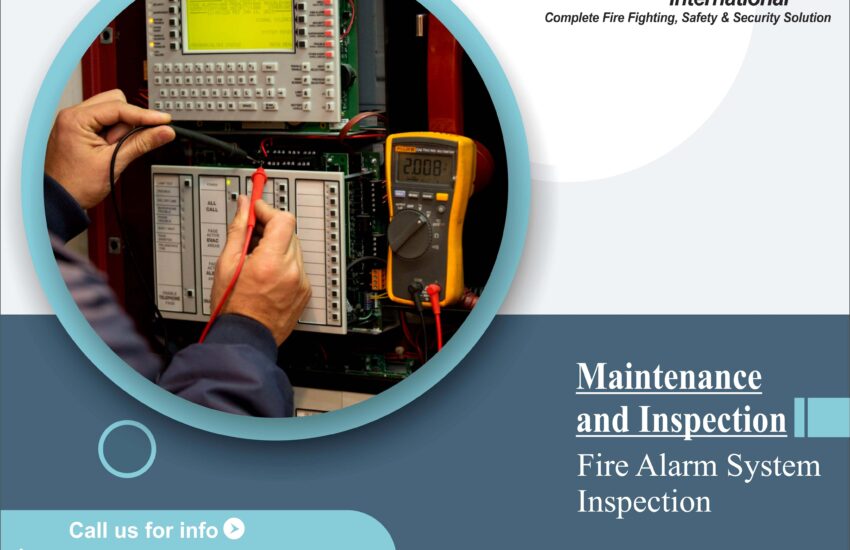Fire Alarm System Inspection is a thorough examination of all components in a fire alarm system to ensure they are functioning properly and meet fire safety regulations. This includes testing smoke detectors, heat detectors, manual pull stations, control panels, and audible/visual alarms.
Regular inspections are not just a legal requirement—they’re a crucial part of protecting lives, property, and ensuring operational readiness during emergencies.
Why Fire Alarm Inspections Are Important
Fire alarm systems can degrade over time due to dust, wear, battery issues, or electrical faults. Professional fire alarm inspections ensure that:
- The system detects fires early
- Alarms are triggered properly
- Emergency response can be initiated immediately
- You remain compliant with NFPA 72 standards, local building codes, and insurance requirements
Failing to inspect your fire alarm system regularly could result in fines, insurance issues, or devastating property loss.
How Often Should Fire Alarm Systems Be Inspected?
According to the National Fire Protection Association (NFPA), fire alarm systems should be:
- Inspected Annually for commercial buildings
- Tested Monthly for certain components (e.g., smoke detectors)
- Inspected Semi-Annually or Quarterly, depending on local codes and system complexity
Commercial fire alarm inspections often require a licensed fire protection company to perform detailed testing and provide inspection reports for authorities having jurisdiction (AHJ).
What Does a Fire Alarm Inspection Include?
A comprehensive fire alarm system inspection checklist typically covers:
- Visual inspection of all devices and control panels
- Testing smoke and heat detectors
- Testing manual pull stations and annunciators
- Checking battery health and power supply
- Verifying communication with emergency responders
- Functional test of horns, strobes, and speakers
- Reviewing event logs and past alerts
Your fire alarm inspection company should provide full documentation and recommend any required maintenance or upgrades.
Benefits of Professional Fire Alarm Inspection Services
Hiring a certified technician or company for fire alarm inspection services offers several benefits:
- Expert Knowledge of NFPA and local fire codes
- Accurate Testing using specialized tools
- Detailed Reports for compliance and insurance
- Peace of Mind knowing your system works when it matters most
Common Issues Found During Inspections
- Dead or low backup batteries
- Disconnected or faulty wiring
- Blocked or dirty smoke detectors
- Corroded components due to moisture or age
- Unmonitored systems not connected to emergency responders
Regular fire alarm system testing can detect these issues early and prevent failure in real emergencies.
Fire Alarm System Maintenance and Compliance
After inspection, your system may require fire alarm maintenance, such as:
- Replacing detectors or batteries
- Cleaning components
- Updating control panel firmware
- Repairing or replacing wiring
Staying proactive with maintenance ensures compliance with fire safety regulations and reduces liability risks.
Who Needs Fire Alarm Inspections?
Fire alarm inspections are essential for:
- Commercial buildings
- Schools and universities
- Hospitals and healthcare facilities
- Factories and industrial sites
- Residential complexes and high-rises
Whether you’re a building owner, property manager, or business operator, investing in regular inspections is a legal and ethical obligation.
Choose a Reliable Fire Alarm Inspection Company
When selecting a provider for fire alarm inspection services, look for:
- Licensed and certified technicians
- Experience with your type of system
- Positive reviews and references
- Detailed reporting and documentation
- 24/7 emergency service options
Partnering with a trusted fire protection company ensures long-term safety and compliance.
Final Thoughts
A fire alarm system inspection is more than just a checkbox on your to-do list—it’s a life-saving measure. Regular, professional inspections help ensure your fire protection systems are fully functional, code-compliant, and ready to respond in case of an emergency.


